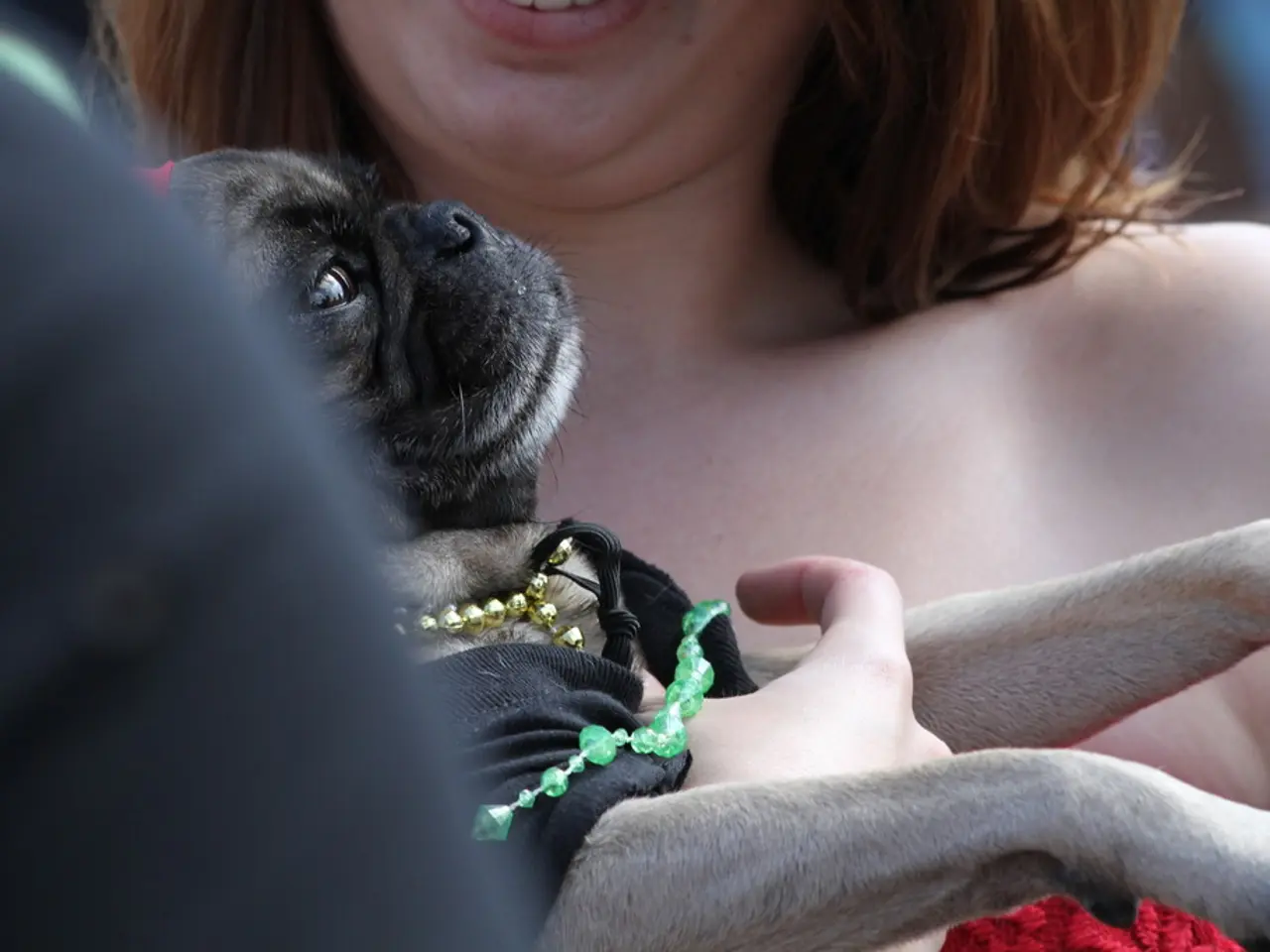Expert Veterinarian Offers Simple Strategies for Preventing Puppy Nipping (Surprisingly Straightforward)
As your adorable puppy grows, you might notice a change in their behaviour - a sudden increase in biting. Fear not, for this common issue can be addressed with a few simple steps.
Puppies often bite more during their teething stage, which typically occurs between four to six months. To alleviate some of the pain they experience, investing in the best teething toys for puppies can be beneficial.
One effective method is introducing bite inhibition. This training helps puppies moderate the force of their bite to prevent causing pain or harm.
Dr. Hannah Godfrey, a veterinarian who studied at the Royal Veterinary College London, strongly advocates for this approach. She advises reinforcing good behaviour by praising and rewarding a puppy with treats when they stop biting or choose a chew toy instead of a person or furniture.
If a puppy bites, imitating a yelp or making a loud 'ow' noise, letting your arm or leg go limp, ignoring them for 20 seconds, and reengaging later can help teach them not to bite.
Another deterrent is the use of bitter sprays. These non-toxic products are available on the market and can be applied to furniture and other objects to prevent a puppy from biting. Before applying the spray to furniture, it's recommended to introduce it to the puppy by giving them a piece of cloth sprayed with the product to bite and hold up to their nose.
Removing a puppy's water bowl for 30 minutes before introducing them to the bitter spray ensures they don't immediately wash the taste out of their mouth.
Redirection can also be used to distract a puppy from biting. Offering them a favorite toy and engaging them in a game of tug-of-war can divert their attention away from you.
Distraction can keep a puppy occupied and prevent them from biting clothes, furniture, or other objects by providing plenty of toys, especially chew toys, and learning how to use Kong toys.
Teaching a puppy not to bite involves stocking up on the best puppy toys, good quality treats, and investing time and patience. If a puppy's behaviour seems excessive or aggressive, it's best to speak to a vet or a qualified behaviorist.
Most pups should stop biting as they grow, but if biting continues past six months, it's a good idea to seek advice from a vet.
For more information on puppy behaviour, such as understanding puppy growling when playing, you can find an article on our website. Remember, puppies explore the world using their mouths and need to be taught what behaviours are acceptable.
By reinforcing good behaviour and teaching bite inhibition, you can help your puppy grow into a well-behaved, loving companion. Happy training!
Read also:
- Peptide YY (PYY): Exploring its Role in Appetite Suppression, Intestinal Health, and Cognitive Links
- Toddler Health: Rotavirus Signs, Origins, and Potential Complications
- Digestive issues and heart discomfort: Root causes and associated health conditions
- House Infernos: Deadly Hazards Surpassing the Flames








